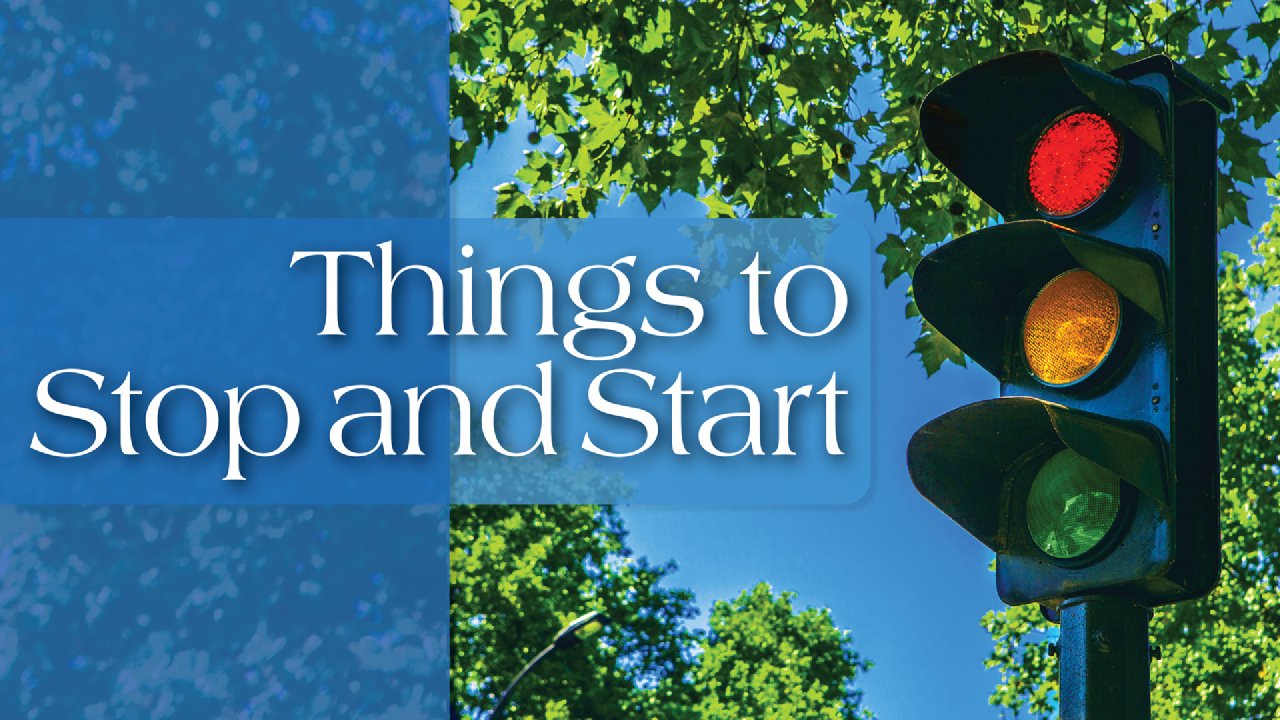In our image-conscious society, there is an enormous emphasis placed on appearing to be someone you're not. This includes leaving the impression that we are bulletproof, that we're on top of any challenge and all circumstances, which means we are living in the realm of virtual perfection. Playing such a role is not just inauthentic; it also encourages us to keep others at a distance. The last thing we want is for them to get so close they're able to discover the truth, namely, that we're nowhere near the person they think we are.
Therefore, we learn early in life to “put up a good front.” The pressure mounts, forcing us to work overtime in order to fulfill this phony image. Someone accurately described our situation as this: “We are not who we are. We are not even who we think we are. We are who we think others think we are.” In the mix of that, we cultivate the habit of faking it.
There is a much better way to live. It calls for letting down our guard. It requires modeling reality. It has to do with no longer polishing our image. It means being vulnerable.

Stop Acting Perfect and Start Being Vulnerable
Message 7
Pastor Chuck Swindoll
Stop Drifting Along and Start Digging In
Pastor Chuck Swindoll • Proverbs 2:1–9
Shallowness is not attractive. This is true, not so much in children, but in the lives of adults, those who ought to know better. Many are satisfied to skate along, hitting the high spots, seldom deliberately pausing to go deeper . . . probe deeper . . . think deeper. Unfortunately, there is little in our hurried and hassled age that promotes the importance of depth—even in many churches. Stop and consider how many have turned their worship into entertainment and selected programs filled with non-stop activities as a substitute for growing, learning, and applying wisdom to their lives. How easy it is to start looking more like a herd of cattle in a stampede than God's flock resting in green pastures. If you are ready to allow God to bring about lasting transformation in the way you live your life, let today be a turning point. Make the decisions today that can change the course of your life.
Stop Procrastinating and Start Following Through
Pastor Chuck Swindoll
The beginning of a year is an ideal occasion to come to terms with how we utilize our time. With all these weeks and months stretching out in front of us, we have an excellent opportunity to focus on how well we handle our days. Looking back, most of us can recall saying the same words again and again: “I don't have enough time.” While we may repeat that statement with great sincerity, is it true? Stop and think: Is it really true that we don't have “enough time” in our day? Could it be that our problem is not having enough time but making the most of the time we have? Convicting though it may be, everyone has the same amount of time in his or her day . . . no matter his or her age, gender, social status, marital status, or education. We are all given the same number of hours. The crucial issue is not having enough time, but using it wisely and well. More often than not, we've formed the habit of putting off what needs to get done rather than following through on those things we need to accomplish.
Stop Shaming and Start Honoring
Pastor Chuck Swindoll • Luke 15:11–32
Shame. Its message is dreadfully debilitating and packed with pain. The corrosive effect it has on how we love, parent, work, and lead (to name only a few) is enormous. As one authority on the subject has written, “Shame keeps us small, resentful, and afraid,” which is the way many choose to live their lives. Shame is, primarily, the fear of disconnection. Since we are psychologically, emotionally, and spiritually hardwired for connection, love, and belonging, the message shame proclaims is devastating. Listen to its voice: “I'm not worthy or good enough for acceptance, belonging, or connection. I'm unlovable, I cannot measure up, and I lack what is necessary to accomplish what others expect of me.” In our shame-prone culture, parents, bosses, teachers, and many pastors consciously or subconsciously urge people to connect their significance to what they produce. This prompts disengagement, blame, and favoritism, resulting in fear of risk, absence of vulnerability, and a total lack of innovation. How much better to respect and honor others—even when they fail to measure up to expectations or “blow it” big time!




